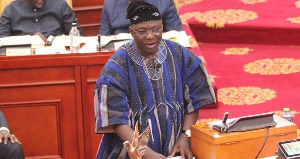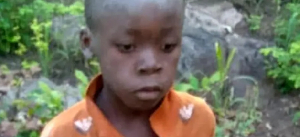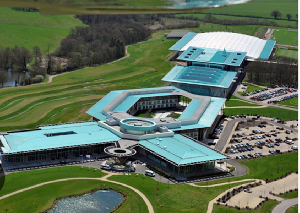Minister of Sanitation and Water Resources Cecilia Dapaah’s response to Parliament that the city of Accra is generally clean has been challenged.
The Minister described Accra as a beautiful capital city of beautiful people, but of a sea of waste in Accra following a 15-minute rain last Friday made Dr Abdul-Rashid Pelpuo, MP for Wa Central Constituency, to question if that image was not an indication of failure of sanitation.
Mr Andrew Dari Chiwitey, MP for Sawla/Tuna/ Kalba set the discussion going by asking the Minister, invited by the House to respond to “what urgent steps were taken to clear Accra of filth.”
Madam Dapaah outlined a number of efforts to clear Accra of filth and to improve sanitation.
Minority Leader and MP for Tamale South Haruna Iddrisu reported of a demonstration by residents in Asylum Down, in Accra over filth, and Dr Pelpuo informed the House that he sent the images to the Minister by WhatsApp, of a sea of waste to the Minister.
She responded that the post had been found to be fake; as people went there and the situation was not like that. “That’s debatable,” she said.
Also, she said she was out of town at the time, and so sent her officers there, with a further follow-up by Works and Housing Minister Samuel Atta Akyea, who she said is capable of handling the drainage situation in that area.
She however said the complaints of the residents of Asylum Down were well placed, and the Minister had given contracts for dredging and desilting.
Dr Pelpuo suggested also to the Minister to undertake a study of the Rwandese system of sanitation and see what measures, including could apply in Ghana to improve on sanitation.
The Minister however rejected a suggestion by Mr Inusah Fuseini, MP for Tamale Central to lead the campaign against plastic waste, a worrisome source of waste, which she said was the remit of the Ministry of Environment, Science, Technology and Innovation.
She said her Ministry would play a collaborative role with other Ministries in addressing the plastic waste challenge.
Asked what was being done to deal with the plastic waste menace, Mad Dapaah said the banning of plastics was considered, and announced that a plastic policy was launched last year, promising to get members copies.
Madam Dapaah said the Ministry has recently inaugurated an Inter-Ministerial Task Force on Environmental Sanitation to coordinate all efforts by relevant Ministries, Departments and Agencies and other stakeholders to facilitate collaboration and accelerate delivery of a clean Ghana.
The Street Litter Bin programme, she said had deployed 20,000 litter bins nationwide, and procured 5,100 street litter bins; and asked the public to cooperate by depositing only litter generated in public places and on the street into the bins and not to fill them with household waste.
The Minister said the Ministry was collaborating with the Ministry of Local Government and Rural Development to strengthen the enforcement arm of the various Metropolitan, Municipal and District Assemblies (MMDAs) by revising sanitation bye-laws and training Environmental Health Prosecutors.
Madam Dapaah attributed the sanitation challenges to growing population and migration.
She announced that 27,000 household toilets have been constructed to benefit 300,000 people in the Greater Accra Metropolitan Area (GAMA) within the last three years.
Other efforts to improve sanitation in the GAMA area in the short and medium term are the building of new transfer stations, sanitary landfill site at Ayidan in Ga South among others.
Statistics from the Ministry indicate that the City of Accra, made up of 24 Metropolitan and Municipal Assembly generated 5,000 metric tonnes of solid waste daily, out of which 80 per cent was adequately collected and disposed of by private waste service providers.
In a broader sense, filth is any material unused and rejected as worthless or unwanted. It is also the state of being covered with unclean materials characterised by foul or disgusting dirt or refuse.
The Minister urged the MPs to initiate and lead sanitation activities in their communities.
Click to view details



General News of Saturday, 7 March 2020
Source: GNA
Accra is generally clean - Sanitation Minister
Entertainment
















